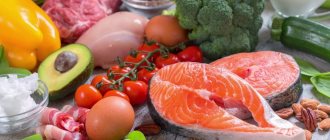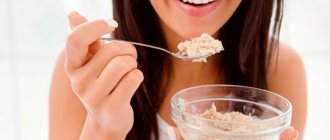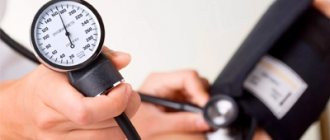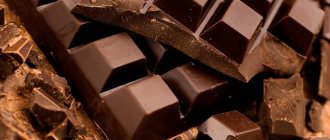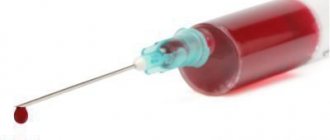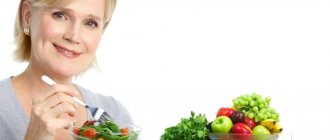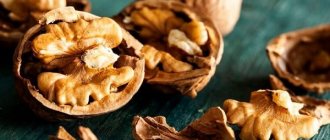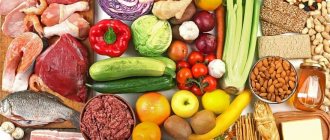Proper nutrition is the basis of a healthy lifestyle. At the same time, doctors note that recently there have been more and more deaths associated with chronic cardiovascular diseases.
And the precursor for them is atherosclerosis - the formation of cholesterol and atherosclerotic plaques and blood clots on the walls of blood vessels. All this develops precisely against the background of poor nutrition and the predominance of animal fats and protein foods in the diet.
However research confirms that with the help of nutrition you can significantly reduce the risk of developing atherosclerosis and other cardiovascular diseases.
Scientists claim that there are products that help clean blood vessels, thin the blood and maintain the entire circulatory system in a healthy state. What are these products? All the answers are in our article.
General recommendations
The main principle of healthy eating is balance. Food containing animal fats and cholesterol must be present in the diet of a child or adult. Fatty acids are a source of energy, cholesterol is an integral part of cells, and bile is also produced from it.
But any products should not be in excess. Moreover, the human body is designed in such a way that the basis of its diet should be plant foods . From it a person receives vitamins, minerals, fiber, and vegetable oils, which directly and indirectly participate in all biochemical processes (including the absorption of fatty acids and cholesterol).
Is it really possible to clean arteries and blood vessels with the help of special nutrition? Doctors say that it is possible to get rid of formed atherosclerotic plaques only mechanically - through surgery. But it is really possible to break down excess cholesterol in the blood. To do this, it is enough to maintain the correct biochemical balance of blood and lymph.
Cholesterol is also quite easily broken down with the help of vitamin C, tocopherol, and potassium compounds. More precisely, the process of its breakdown, which occurs in the liver, is stimulated.
The procedure for cleansing blood vessels will bring the desired benefit if the liver properly performs its main function - filtering blood.
What kind of artery cleansing foods should you eat? We divide nutrition into classes, each class has its own most useful products that help strengthen the blood vessels of the brain, arteries and veins.
Features of dieting
The purpose of diets used to treat blood vessels:
- weight loss and prevention of weight gain, which will have a positive effect on joint restoration;
- cleaning blood vessels from plaques;
- lowering blood cholesterol levels and removing toxins from the liver.
The diet includes foods containing fiber. to avoid dehydration during this period This approach reduces blood cholesterol and eliminates toxins.
Basic human nutrition should have the following structure:
- 50% complex carbohydrates in the form of vegetables and fruits;
- 25% protein;
- 25% complex carbohydrates in the form of porridge.
Salt intake should not exceed 7 g per day. Once a week it is recommended to arrange fasting days.
1-7: Fruits and vegetables
The main benefit of vegetables and fruits for blood vessels is the presence of a large amount of vitamins, as well as fiber, which is not digested or absorbed by the body, but takes part in metabolism (promotes intestinal motility and removes toxins and dense feces from it). What fruits and vegetables are rightfully considered necessary for our vessels?
Lemon
Lemon is known to cleanse arteries. It is one of the largest sources of ascorbic acid (vitamin C), which is involved in the oxidation of cholesterol and stimulates its breakdown into derivative elements.
Moreover, it predominantly reacts with low-density cholesterol, which is usually called “harmful”.
Doctors recommend consuming at least 50 grams of fresh lemon weekly (during heat treatment or, for example, adding citrus to tea, most of the ascorbic acid breaks down into derivatives).
Beet
Beets have an anti-cholesterol effect. This vegetable is one of the largest sources of fiber. Its frequent consumption significantly reduces the risk of developing chronic intestinal diseases.
And beets also help get rid of accumulated toxins , thereby “speeding up” metabolism - “complex” animal fats are absorbed much more actively, cholesterol practically does not accumulate in the circulatory system.
Celery
Celery is good for the heart. It also contains the lion's share of fiber, and it also contains elements such as tyrosine, aspargine, and carotene.
It also contains a whole combination of essential oils (which give the plant its specific taste), which enhance the functioning of the endocrine system, in particular the synthesis of enzymes.
Celery brings the most benefits to the gastrointestinal tract, and indirectly it regulates lipid metabolism.
Pumpkin
Nutritionists say that pumpkin is one of the best sources of “simple” carbohydrates, which are absorbed by the body within 30 to 50 minutes after consumption.
But pumpkin seeds, which contain a fairly large amount of essential oil, are no less useful - it acts as an irritant to the entire digestive system and enhances peristalsis.
And pumpkin oil contains a considerable amount of unsaturated fatty acids - the best option for those who are overweight.
Onion
Although onions are not sour, they contain only slightly less ascorbic acid than lemon and other citrus fruits. In addition, it contains a combination of rare essential oils that stimulate the production of enzymes.
For information on the effect of onions on the cardiovascular system, see a separate article.
They also act as a bactericidal agent, reducing the likelihood of developing infectious diseases.
Doctors also say that daily consumption of red onions (they contain a large amount of iodine) significantly reduces the likelihood of developing diseases of the pancreas and gall bladder - these organs are one of the most important in the entire digestive system.
Ginger
Also rich in vitamin C and specific essential oils.
It acts as an irritant and a long-acting antibacterial agent (that is, the positive effect of its use will be observed after several weeks).
Read more about the benefits of ginger for blood vessels and the heart here.
And ginger root and tea based on it have a positive effect on overall tone. The substances it contains stimulate the absorption of protein and fats, thereby reducing the likelihood of the formation of atherosclerotic plaques . It should be used with caution by those who have problems with the reproductive system (in particular, the prostate gland).
Horseradish
Most of the horseradish root, which is used in cooking, is occupied by fiber and essential oils with a powerful antibacterial effect.
reduces the likelihood of developing chronic diseases of the cardiovascular system by almost 10 times .
It also helps normalize blood pressure in hyper- and hypotensive patients. Horseradish is also a product that lowers sugar levels, thins the blood and reduces hemoglobin.
Diet for vascular atherosclerosis
First of all, it is supposed to reduce the consumption of fats (containing cholesterol) to such a level that they account for less than 30% of daily calories. In this case, the proportion of saturated fats should not exceed 10%. It is recommended that cholesterol intake be no more than 300 mg per day.
The next requirement for the diet is calorie restriction. In this case, the total caloric intake should not exceed 2500 calories per day. However, we must not forget about the variety and nutritional value of food. It is known, for example, that a deficiency of protein in food reduces resistance to stress, a lack of fatty acids contained in vegetable oils impairs brain function, etc.
Animal products
The consumption of saturated fat, or more simply cholesterol, can be reduced by reducing the amount of beef, pork and lamb. It is recommended to consume any meat products boiled.
It is necessary to remove the skin from the bird and avoid eating the internal organs of animals.
Fatty fish, such as halibut, contain a completely different type of fat that helps dissolve cholesterol plaques in arteries affected by atherosclerosis. Experts from Duke University believe that even one fish meal a week may be enough to reduce the risk of an unexpected heart attack by 50%. Interestingly, you can take fish oil instead of fish, which contains omega-3 fatty acids and lowers cholesterol.
Also, the diet should satisfy the body's needs for vitamin B6. It is actively involved in the processes of fat metabolism, in the transport and breakdown of cholesterol, and in organic iodine, which increases the synthesis of thyroid hormones. Thus, it stimulates the processing of dangerous cholesterol.
For this purpose, it is recommended to include seafood in the diet:
- seaweed dishes,
- squid,
- scallop,
- mussels, etc.
These are the products that lower cholesterol and “clean” blood vessels .
Products of plant origin
Vegetable oil contains “healthy” polyunsaturated fats. Olive oil is considered the most beneficial among vegetable fats. Try to replace them with other types of fats that contain bad cholesterol. Preference should be given to unrefined, cold-pressed olive oil. Because it contains a record amount of antioxidants that are beneficial for the heart and blood vessels, preventing the development of atherosclerosis. This oil is also involved in cleaning blood vessels from cholesterol.
But you can’t get carried away with vegetable oils either! This is often forgotten in recommendations. The fact is that an excess of polyunsaturated fatty acids can lead to a decrease in good cholesterol, which has an anti-sclerotic effect.
Cholesterol intake can be reduced by reducing the consumption of egg yolks (4 yolks per week) and organ meats:
- brain,
- kidneys,
- liver.
55-60% of daily calories should be provided by complex carbohydrates:
- vegetables,
- whole grain products,
- fresh fruits.
An important point is the inclusion of wholemeal products in the diet. The substances contained in the shells of grain crops bind and remove from the body cholesterol contained in food, as well as salts of heavy metals, nitrates and nitrites, carcinogens. Whole grain bread, wheat bran and oat bran contain coarse fiber. The norm is at least 20 g of fiber per day.
One of the richest sources of omega-3 fatty acids is flaxseed. Canadian cardiologists have found that regular consumption of flaxseed provides reliable protection against the formation of blood clots and cholesterol deposition in the arteries, leading to heart attack and stroke. The risk of heart attack can be reduced by up to 40%. 2 tbsp per day is enough. tablespoons of flaxseed, which can be added to porridge, salads and other dishes. Flaxseed should be stored in the refrigerator.
In fact, all of the above products can be classified as traditional methods of treating vascular atherosclerosis.
8-10: Berries
The composition of the berries necessary for blood vessels is quite similar to ordinary fruits, but they have several significant advantages:
- high content of “complex” glucose (therefore they can be included in the diet for diabetes);
- the presence of fatty oils (which can replace animal fats);
- a wide combination of vitamins (there are over 10 of them in rowan).
Kalina
In addition to vitamin C and B vitamins, it contains phytosterols - a class of substances of plant origin that act as mediators on the human body. That is, they provoke various kinds of biochemical processes.
Phytosterols, which are found in viburnum, accelerate the absorption of vitamin E, which is precisely necessary for normal hematopoiesis.
Viburnum also helps remove accumulated toxins from the blood. Moreover, it is better to use it in dried form.
Cranberry
Cranberries contain a huge amount of vitamin C, so it is almost impossible to consume them fresh. But it is an excellent preservative.
And the tincture of cranberries with garlic and lemon helps make blood vessels more elastic - in this case, cholesterol is practically not deposited on them even in old age.
Cranberry slightly helps to slightly dissolve atherosclerotic plaques, accelerating the breakdown of lipids. But you still won’t be able to completely get rid of them.
Rowan
Black rowan is more suitable for cleansing blood vessels. Its key benefits are lowering low-density cholesterol levels and increasing the synthesis of erythrocytes (red blood cells).
Just keep in mind that in excess, rowan can be harmful. Most often this ends in gastritis or stomach ulcers .
What foods should you exclude from your diet?
It is necessary not only to saturate your diet with healthy foods, but also to get rid of harmful foods. Of course, there are a number of foods that cannot be excluded, but you can minimize their consumption. These products include:
- Milk and dairy products. Milk contains casein, which, under the action of an enzyme, leads to their breakdown. This is a long process that is quite energy-consuming. In addition, during breakdown, a lot of fructose is formed, and this is what helps increase blood viscosity.
- Alcohol. The body perceives alcohol as poison. To remove this poison from the body, you need to spend a large amount of liquid. This is what leads to the fact that the next day after severe alcohol intoxication, severe thirst may develop. This effect of alcohol on the body leads to increased blood viscosity. Moreover, this phenomenon is observed even when drinking alcohol in small quantities. Another thing is red wine, drinking it is even healthy.
- Animal fat. Pork, sausage and beef in themselves are not harmful to the body. But with excessive consumption, fat deposition under the skin and in the blood vessels can develop. Atherosclerosis leads to thickening of the blood due to impaired blood flow through the vessels. In advanced cases, this leads to the development of liver and kidney failure. Of course, you cannot completely eliminate such food, but everything should be in moderation.
- Potato. Besides potatoes, you should be careful with rice. These foods contain a lot of starch, which turns into carbohydrates and leads to an increase in blood sugar. Due to this, blood viscosity increases.
- Bananas. Bananas contain a huge amount of carbohydrates. You should not eat more than two bananas a day. As for children, it will be too much for them. Athletes can afford a little more bananas in protein shakes.
what to eat to reduce blood viscosity
10: Garlic
Garlic contains essential oils and phytoncides, which optimize the functioning of the entire digestive tract, and also accelerate the breakdown of lipids and cholesterol.
Garlic also removes toxins from the blood and prevents their accumulation during infectious diseases (many viruses and bacteria literally poison the body during their life processes). There are a lot of garlic-based recipes that can be identified as the most effective for cleansing the body:
- Tibetan recipe for garlic tincture. It is believed that this remedy will help increase the average lifespan up to 100 years. And this is explained precisely by its positive effect on the cardiovascular system. This tincture can be used both for the prevention and treatment of atherosclerosis.
- Garlic tincture with red wine. Positively affects hematopoiesis. It will be especially useful for hypertension and obesity, when the red spongy substance produces significantly less red blood cells (which often leads to oxygen starvation of the brain and other organs).
- Honey, lemon and garlic. It helps in a comprehensive manner to reduce cholesterol, optimize lipid metabolism, and strengthen the liver (which breaks down cholesterol into derivative elements that can be absorbed by the body). You just have to remember that when honey is heated above 60 degrees, it loses a lot of useful substances. But at the same time, it is an excellent preservative that prevents the oxidation of garlic or lemon. Ready-made products, which include honey, lemon and garlic, can be stored for at least several months in a household refrigerator.
- Ginger, lemon, honey and garlic. This “combination” helps cure a whole range of diseases of the cardiovascular system. And with its help you can significantly strengthen the body's immune response. But it is worth considering that garlic, ginger, and lemon contain a high content of ascorbic acid. And in excess, vitamin C acts on the body as a powerful toxin.
- Garlic oil. With its help, the functioning of the stomach, liver, gallbladder and pancreas is normalized. The normal functionality of these organs minimizes the likelihood of excessive accumulation of lipids in the body and blood (which form the basis of atherosclerotic blood clots).
Why is it so important to reduce blood viscosity?
The mechanism of development of this pathological process is quite simple. As blood viscosity increases, its movement through the vessels is disrupted.
Slow blood flow can lead to the development of atherosclerosis, varicose veins and hemorrhoids. In addition, too viscous blood can lead to the development of liver, kidney and heart failure. The most terrible and dangerous development of events may be pulmonary embolism, stroke and heart attack. These pathological conditions are caused by the formation of blood clots in vital vessels. Quite often, such conditions lead to the death of the patient, especially if assistance is not provided in the first hours. Often the cause of death is cardiac arrest or blockage of the pulmonary arteries.
what is important to consider about blood viscosity
11: Honey
The main benefit of honey for the cardiovascular system is the presence in its composition of a wide range of vitamins and minerals, which together normalize the biochemical composition of the blood.
All this helps to optimize the salt balance and reduce the concentration of sodium in the body (which is excreted primarily through the urinary system). The most useful combinations with honey are the following:
- Lemon with honey. Not only reduces cholesterol, but also improves the biochemical composition of the blood. Indirectly, it also reduces the likelihood of cancer (as free radicals in the blood and lymph are neutralized).
- Honey and cinnamon. Doctors say that this combination will bring more benefits to men, since cinnamon significantly increases blood flow in the pelvic organs (this includes the prostate gland). However, this remedy helps well with varicoceles and varicose veins.
- Cranberry, honey and garlic. It has a healing effect on the vessels themselves, improving their elasticity. It also prevents spasms, which often causes blockage of venous valves.
What should you avoid?
According to cardiologists, some foods pose a danger to the cardiovascular system. The greatest danger is posed by:
- Popcorn. 1 serving of the product contains a daily dose of calories and about 60 grams of fat. This causes serious damage to blood vessels.
- French fries. Potatoes themselves do not harm the bloodstream, but salt and oil are used in their preparation. This makes the dish too high in calories and fat. All this contributes to the accumulation of cholesterol in the blood.
- Pizza. Contains a huge amount of saturated fat. They deplete blood vessels and interfere with normal circulation.
- Sugar and confectionery. Exceeding the consumption of these products shortens a person's life by 10-15 years. The products lead to excess weight gain, increase blood cholesterol levels and clog blood flow.
- Red meat. Rich in saturated fatty acids. They provoke clogging of blood vessels with cholesterol.
- Alcohol fills blood vessels with poison and toxins, weakens them, and leads to loss of elasticity.
Those who care about their health should exclude these foods from their diet.
12-17: Herbs and fees
Many medicinal herbs and cleansing decoctions based on them are certified for use in official medicine - this only confirms their effectiveness. Cloves and horse chestnut are considered the most beneficial for the cardiovascular system. At the same time, their main active components are phytoncides - biologically active components that stimulate many chemical processes in the body (including the breakdown of cholesterol).
Altai tea
Altai tea comprehensively improves the functioning of the cardiovascular system and also reduces the risk of heart attack . Acts as a sedative, improves the conductivity of the sinus node.
In combination with lemon, it also reduces low-density cholesterol (without any effect on high-density cholesterol, which is beneficial).
Clover
Various kinds of infusions and decoctions with clover have a positive effect on the nervous system. Acts as a somatic remedy, but without any consequences.
It slightly reduces blood pressure, so if you have hypertension, be sure to include it in your diet.
horse chestnut
Its fruits are considered poisonous, so flowers and prickly skins are used in folk medicine.
Chestnut practically eliminates the risk of developing atherosclerosis, but at the same time it slightly increases blood pressure.
Pine cones
It is the “green cones” that should be used to clean the vessels. Moreover, they should be collected precisely in the forest, and not in dense urban areas.
See the recipe for tincture on cones here.
Pine itself actively absorbs toxins, but the cones contain a large amount of tannins, resins and essential oils.
Carnation
The taste of clove-based infusions is quite specific. But with its help you can significantly strengthen the immune system , and also improve the elasticity of blood vessels and normalize the functioning of venous valves.
Flax seeds
The main benefit is for the digestive system. They normalize lipid metabolism and also accelerate the breakdown of cholesterol.
Doctors also claim that a decoction of flaxseed reduces the likelihood of constipation and diarrhea to a minimum.
General rules for the procedure
During intensive therapy aimed at blocking blood vessels, you need to be especially picky about your daily regimen and nutrition. This will avoid complications and make treatment more comfortable.
- In the prevention and treatment of atherosclerosis, vegetables and fruits should prevail in the patient’s menu.
- It is necessary to minimize the consumption of animal fats, and give preference to lean poultry and lean beef.
- Omega 3 fatty acids should be present in the diet: they contain vegetable oils, nuts and fatty sea fish. If necessary, these products are replaced with capsules with a pharmaceutical drug.
- It is advisable to replace sugar with dark chocolate and not very sweet jams, hot seasonings with fresh herbs.
- You need to significantly reduce the amount of salt in your food and increase the amount of water you drink.
- Be sure to exclude alcohol, baked goods, smoked meats, sausages, fatty and processed cheeses.
18-20: Other products
There are many more foods that can be used to lower cholesterol. Ideally, you should consult a nutritionist on this matter, as he can select an individual diet taking into account the patient’s requirements. “Universal” products of this kind include walnuts or apple cider vinegar.
Propolis
Propolis is no less beneficial for blood vessels than honey. At least there are more minerals in the composition.
However, it may cause an allergic reaction. It's better to start with small doses . It is better to prepare alcoholic infusions with propolis. They are especially useful for diabetes.
Baking soda
Oddly enough, soda can also be used for cleansing. The positive effect is achieved by regulating salt metabolism and accelerating the elimination of sodium combinations.
This is extremely important for the heart.
Apple vinegar
Apple cider vinegar contains a combination of organic acids, many of which literally break down cholesterol and lipids.
But you should use it carefully - no more than 100 milliliters per week. If more, there will be harm to the cardiovascular system.
Also pay attention to the infographic:
